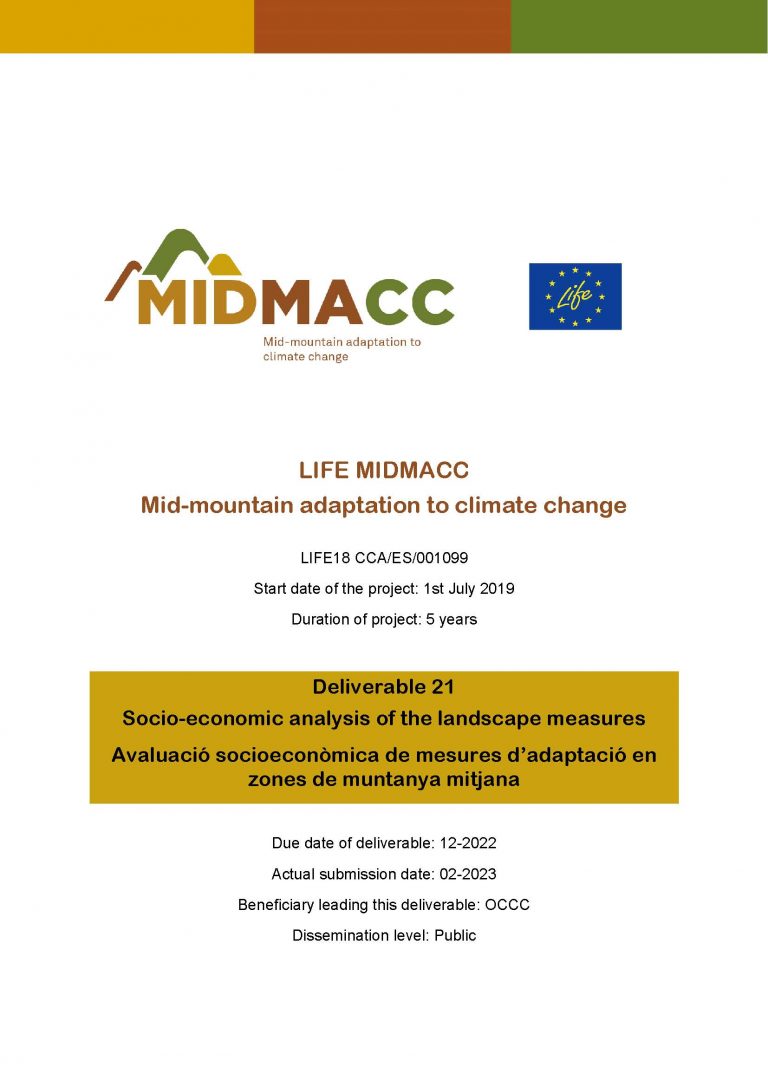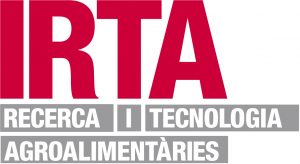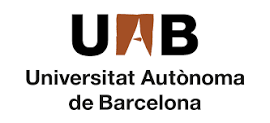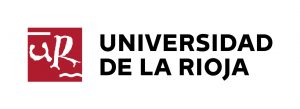This report evaluates the socioeconomic impacts of different land-intervention measures proposed by the project MIDMACC to mitigate the effects of climate change in three mid mountain regions of Spain. In particular, it evaluates the effect of the regaining pastureland for extensive livestock keeping, different forest management regimes that rely on periodical clearing of the forest understory and the plantation of vineyards. This report evaluates the efficiency, effectivity and the costs and benefits of these intervention measures and its potential for replicability. For its assessment, the report focuses on the current and future effects of climate change on the socio-economic consequences on the availability of water resources, the fixation of the population in the territory and the reduction of the risk and the spread of fires forestry, including the reduction of avoided CO2 emissions.
The results show that the well-defined land-intervention measures are effective. For instance, clearing shrublands in the analysed region in La Rioja reduced the probability of wildfire by approximately 70%. The costs avoided per hectare burned by the shrubland clearing policy is around 1,400 € per hectare. The generated hydric resources (blue water) increase for all considered climate change scenarios of up to 4 hm3, resulting in notable economic gains in some of the analysed areas. For example, in Catalonia it represents in terms of an increase in GDP benefits of around 4,900 € per hectare intervened. Apart from the intervention measures in the territory, the report offers a tool that allows to evaluate the effectiveness and efficiency of other measures to reduce the spread of forest fires.










